Nutrition forms the basis of a healthy lifestyle. In 2025, with stress and lifestyle diseases increasing, eating the right foods is more critical than ever before. Intelligent nutrition is not about starving on a diet — it’s about feeding your body with the optimal combination of proteins, carbohydrates, fats, vitamins, and minerals. This blog talks about the top 10 foods that offer maximum nutrition for your body, along with their complete nutritional values per 100g.
From the age-old staples of lentils and millets to the world superfoods of quinoa and oats, these foods have the ability to turn your daily meals into nutrition powerhouses.
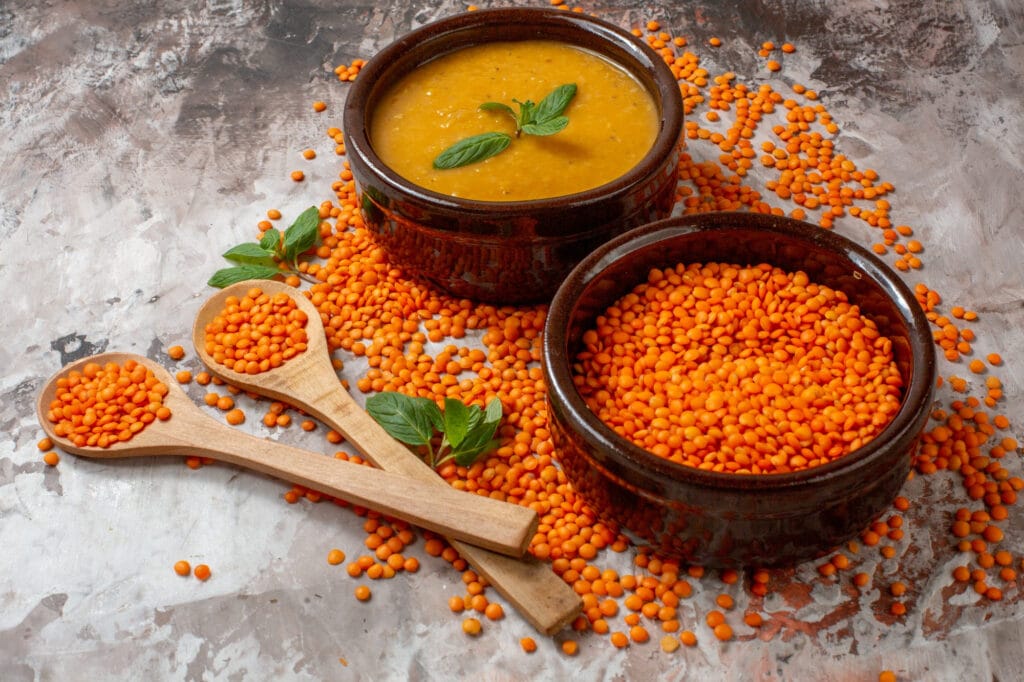
Lentils (Dal): The Protein Powerhouse of Indian
Lentils are the best source of plant protein, a common component of Indian meals and a must in your diet plan.
Lentils (Dal) per 100g (cooked):
- Calories: 116 kcal
- Protein: 9.0 g
- Carbohydrates: 20 g
- Fiber: 8.0 g
- Fat: 0.4 g
- Iron: 3.3 mg
Health Benefits:
- Promotes muscle growth
- Controls blood sugar
- Boosts digestive nutrition
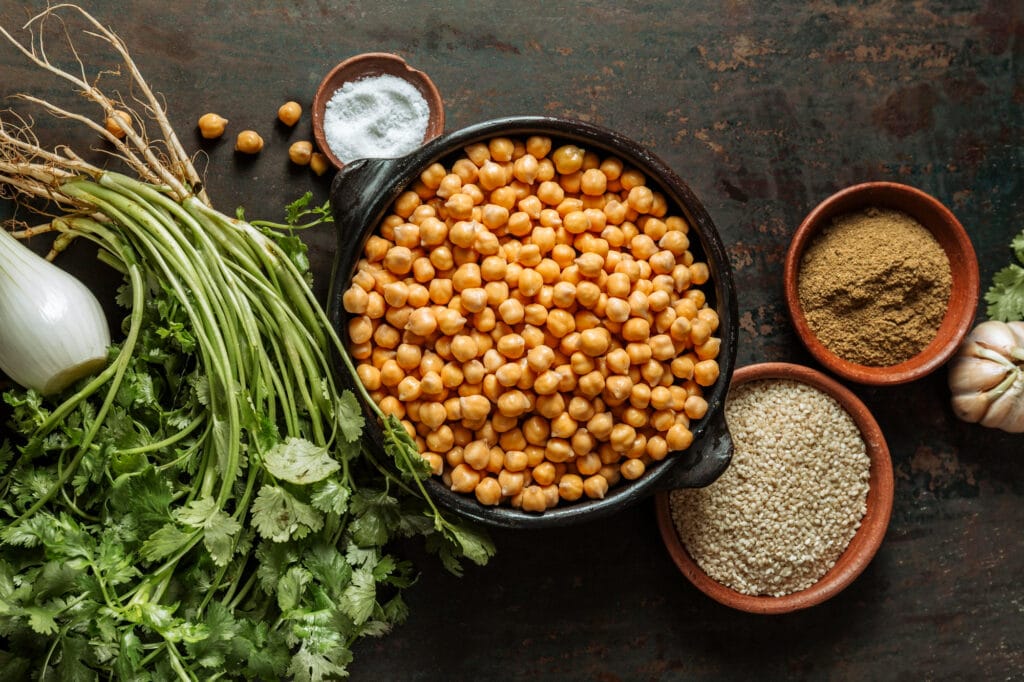
Chickpeas (Chana): Your Heart’s Favorite Source
High in protein, fiber, and minerals, chickpeas offer convenient nutritional advantages — from weight control to cholesterol management.
Chickpeas (Chana) 100g (cooked):
- Calories: 164 kcal
- Protein: 8.9 g
- Carbohydrates: 27.4 g
- Fiber: 7.6 g
- Fat: 2.6 g
- Iron: 2.9 mg
Fun Fact: Chickpeas can be added to soups, salads, and even cakes for a nutrition boost.
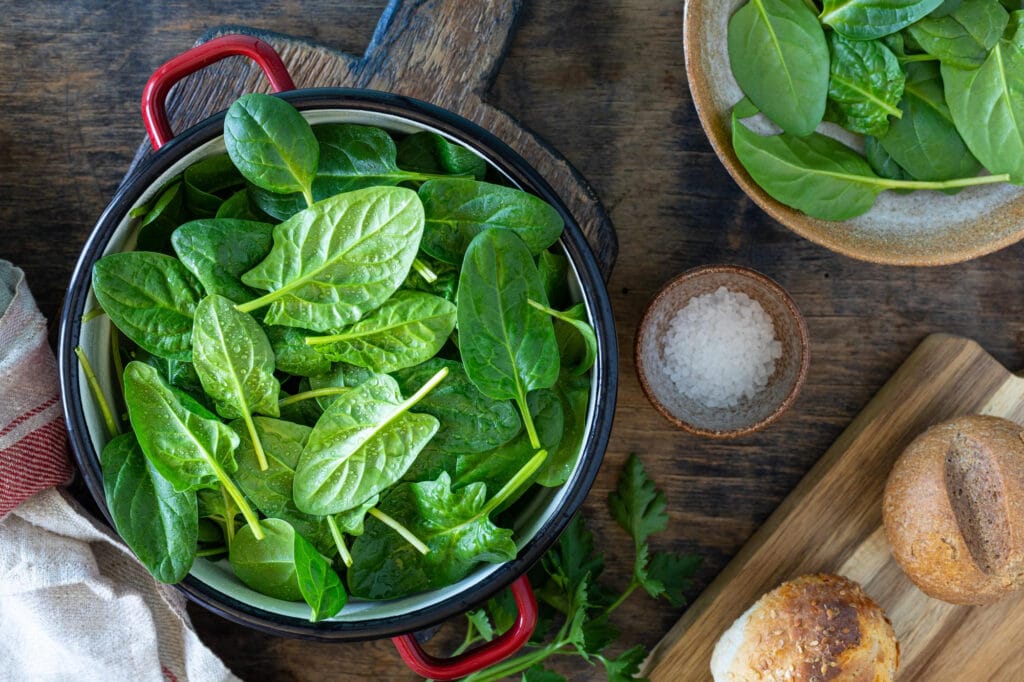
Spinach (Palak): The Leafy Green Packed
Spinach is among the healthy vegetables out there, packed with iron, Vitamin A, and antioxidants.
Spinach (Palak) Per 100g (raw):
- Calories: 23 kcal
- Protein: 2.9 g
- Carbohydrates: 3.6 g
- Fiber: 2.2 g
- Iron: 2.7 mg
- Vitamin A: 9377 IU
Spinach in your diet increases blood flow, eye care, and provides high-quality nutrition with low-calories.
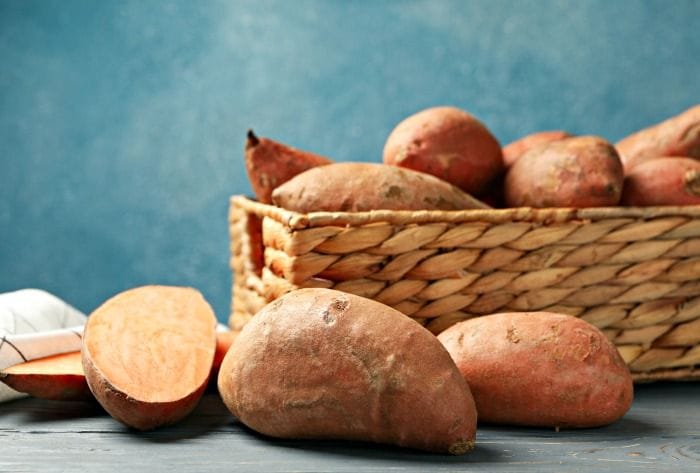
Sweet Potato: The Energy-Dense Root Vegetable Rich
This richly colored root vegetable is not merely sweet in taste but sweet in High value too, especially with regard to gut and skin well-being.
Nutrition per 100g (boiled):
- Calories: 86 kcal
- Carbohydrates: 20.1 g
- Fiber: 3.0 g
- Protein: 1.6 g
- Vitamin A: 14,187 IU
- Potassium: 337 mg
Sweet potatoes are suitable for those requiring constant energy and long-term life.
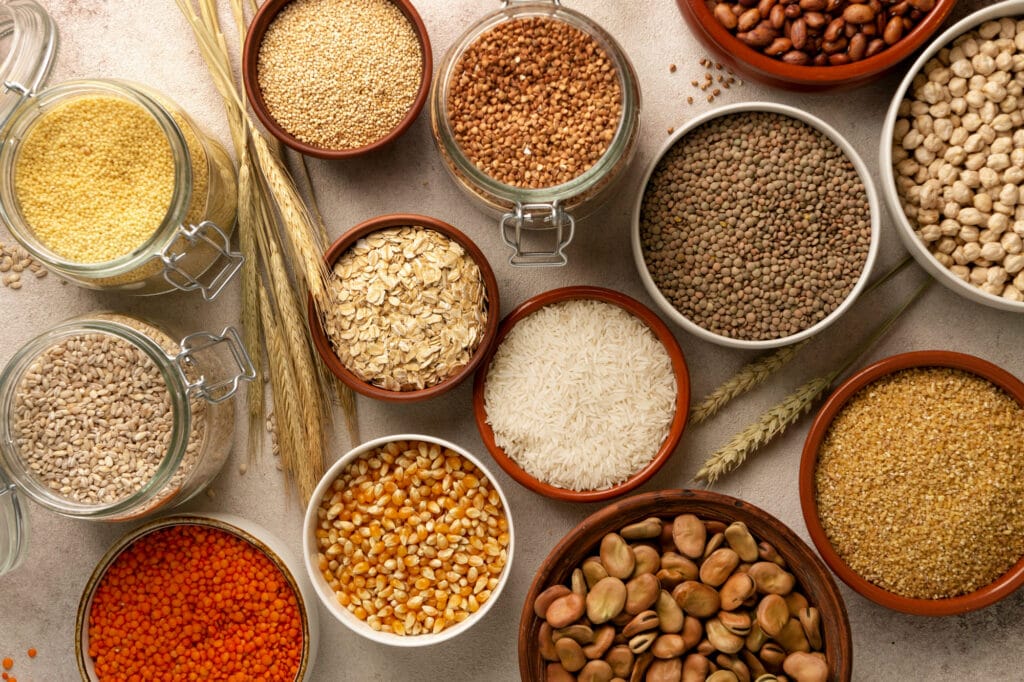
Millets (Ragi, Bajra): Ancient Cereals with Modern Day
Millets are becoming popular once again as gluten-free grains high in complex carbohydrates and micronutrients.
Millets (Ragi, Bajra) Per 100g (cooked Bajra):
- Calories: 119 kcal
- Carbohydrates: 23 g
- Fiber: 1.3 g
- Protein: 3.6 g
- Calcium: 8 mg
- Iron: 1.2 mg
Their stupendous nutritional profile aids weight control and heart health.
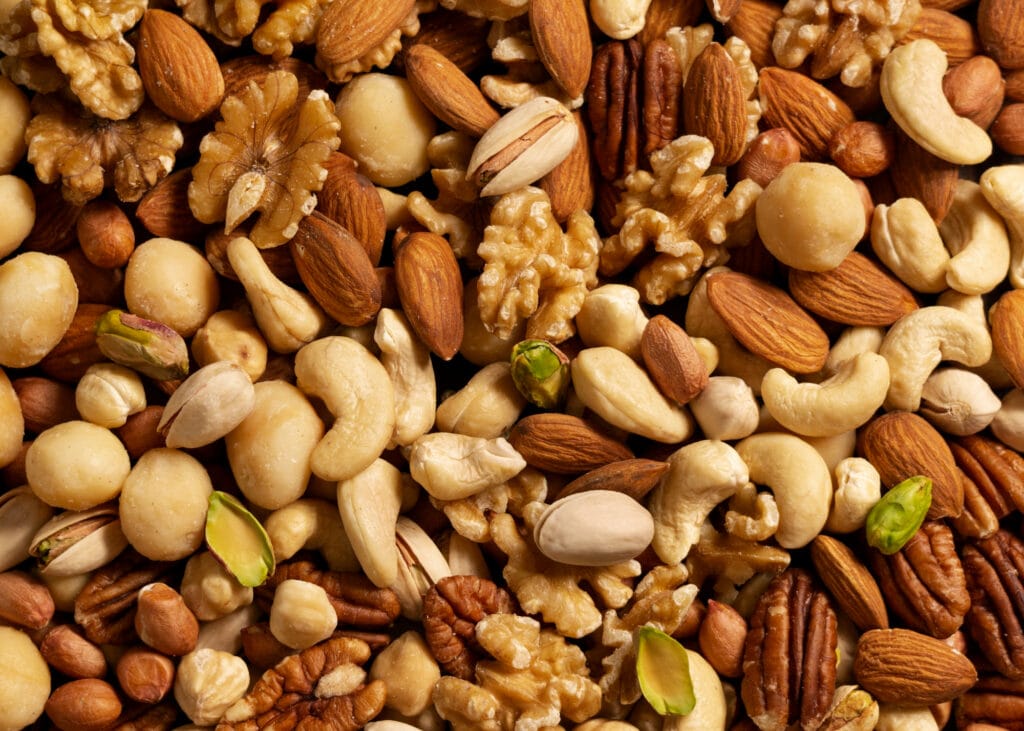
Nuts and Seeds: Little in Size, Great in Health
Do not let the size fool you. Nuts and seeds such as almonds, walnuts, flax, and chia are packed with healthy fat.
Nuts and Seeds in 100g (almonds):
- Calories: 579 kcal
- Protein: 21.2 g
- Fat: 49.9 g
- Fiber: 12.5 g
- Magnesium: 268 mg
- Vitamin E: 25.6 mg
Little will do a long way in energizing brain energy and daily usage of nuts and seeds.
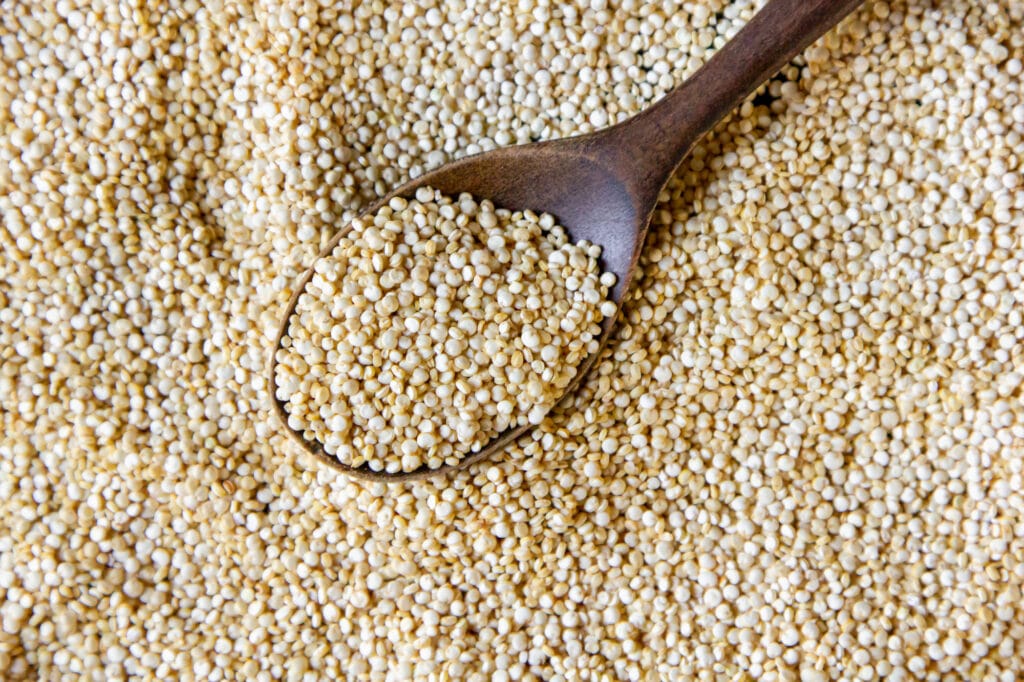
Quinoa: The World Grain That Provides Complete Nutrition
Quinoa is a gluten-free grain that has all the important amino acids — an exceptional and valuable feature in plant food.
Quinoa per 100g (cooked):
- Calories: 120 kcal
- Protein: 4.1 g
- Carbohydrates: 21.3 g
- Fiber: 2.8 g
- Fat: 1.9 g
- Magnesium: 64 mg
Quinoa is generally a high-quality source of plant and is ideal for health-conscious consumers.
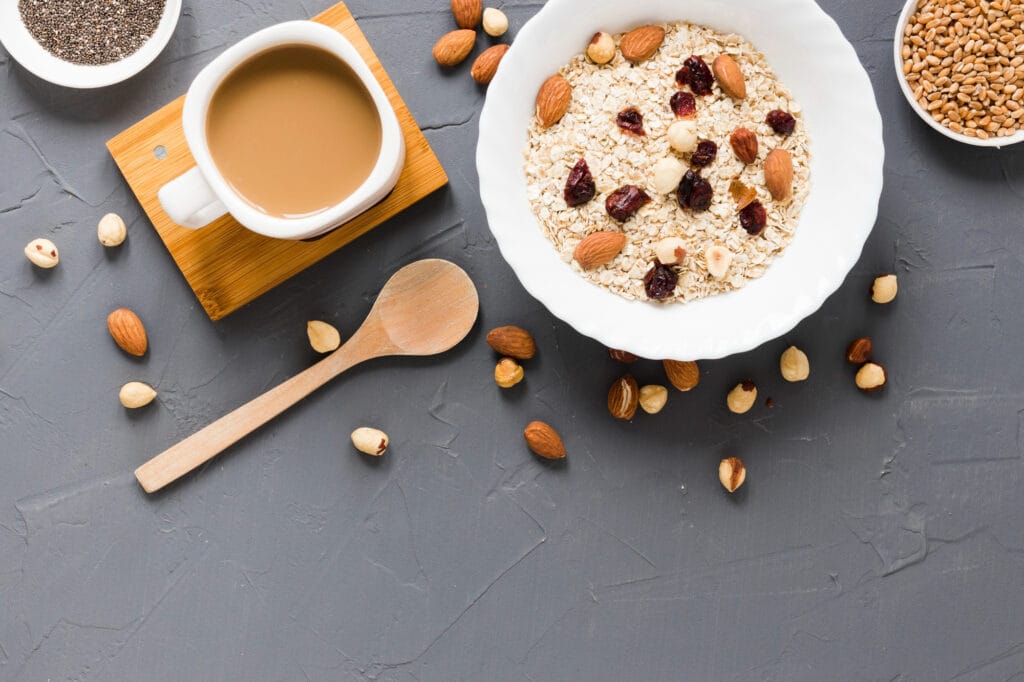
Oats: The Everyday Cereal with Super Health
Oats are famous for lowering cholesterol and promoting fullness, making them a breakfast staple for people focused on smart work.
Oats per 100g (cooked):
- Calories: 71 kcal
- Carbohydrates: 12 g
- Protein: 2.5 g
- Fiber: 1.7 g
- Fat: 1.5 g
- Iron: 0.9 mg
Top your oats with fruits and seeds for a boost that lasts the entire morning.
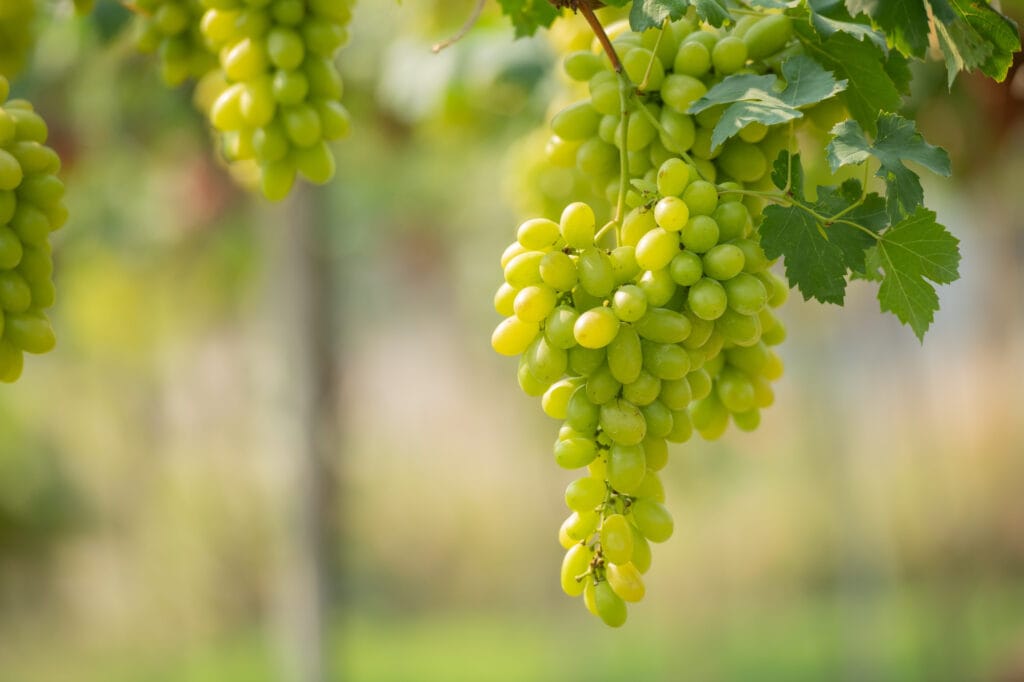
Grapes: Delicious and Moisturizing
These juicy fruits are bursting with water, vitamins, and antioxidants like resveratrol.
Grapes in 100g:
- Calories: 69 kcal
- Carbohydrates: 18.1 g
- Sugar: 15.5 g
- Fiber: 0.9 g
- Vitamin C: 10.8 mg
- Potassium: 191 mg
Grapes are not only tasty — they’re also impressive skin-helping and heart-helping.
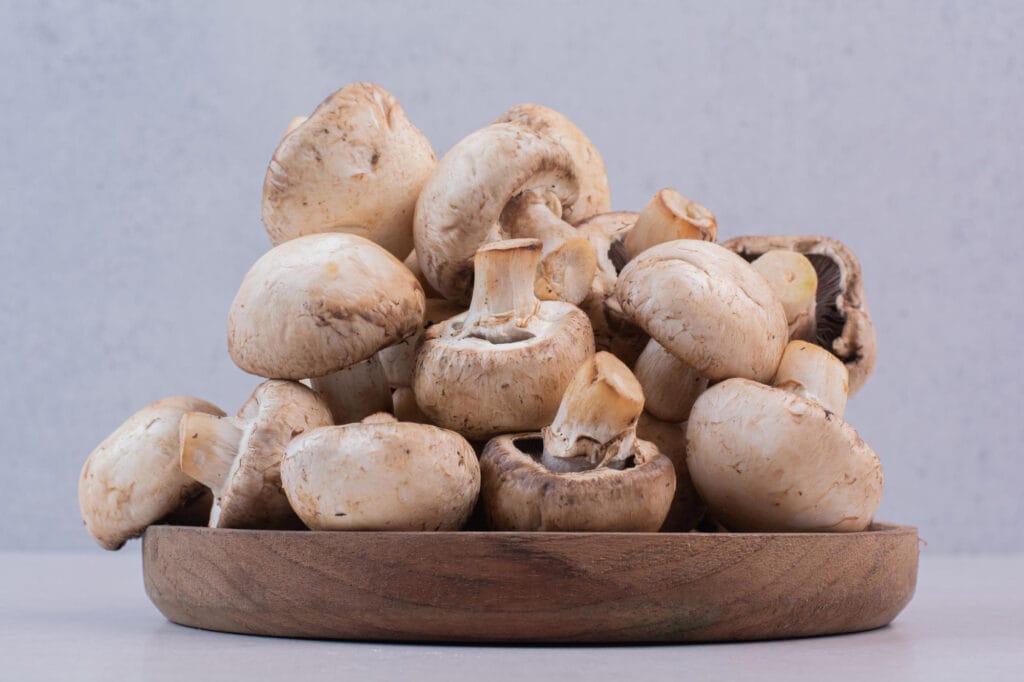
Mushrooms: Nature’s Immunity-Boosting Source of Nutrition
Mushrooms contain B-vitamins, selenium, and beta-glucans — all necessary for immune activity.
Nutrition per 100g (white mushrooms):
- Calories: 22 kcal
- Protein: 3.1 g
- Carbohydrates: 3.3 g
- Fiber: 1.0 g
- Vitamin D: 7 IU
- Potassium: 318 mg
They contain minimal calories but have a wealth of flavor and nutrients.
Why To Prioritize Nutrition in 2025
It is simple enough to miss meals, live off of coffee, and live off processed foods and manage to get by on the run in our lives. However, this is costing us dearly. Stress, fatigue, illness, and burnout — much of these complaints all stem from subpar nutrition.
2025 is the year to reboot.
We have experienced hard times. The global health crisis taught us how fragile our bodies are and how important it is to feed ourselves from the inside out. Good nutrition is not just for the body — it affects your mental clarity, emotional well-being, and ability to live life to the fullest.
Self-care starts from within and continues to nourish our insides.
When you invest your body in nutrient-dense foods, you’re saying: “I count. My wellness counts.” Whatever your schedule and responsibilities, nutrition is the smart choice that yields the strength to persevere, the energy to be present, and the resistance to recover.
Let 2025 be the year when you choose health — not as a destination, but as an habit.
Tips to Improve Daily Nutrition:
- Eat a minimum of one protein source per meal
- Use whole grains like millet and oats in place of refined grains
- Smartly snack on fruits and nuts
- Drink plenty of water for enhanced nutrition absorption
FAQs Regarding Nutrition
Q1. What are the best foods that provide all-around nutrition?
Spinach, quinoa, lentils, and nuts provide complete nutrition encompassing macronutrients and essential vitamins.
Q2. How do I make sure I receive adequate daily nutrition as a vegetarian?
Eating a combination of lentils, whole grains, vegetables, nuts, and seeds can easily fulfill your nutrition requirements without meat.
Q3. What is a balanced nutrition plan?
It comprises a combination of proteins, carbohydrates, fats, fiber, vitamins, and minerals with very little processed food.
Q4. Is it possible to monitor my nutrition?
Yes! Make use of apps such as MyFitnessPal or HealthifyMe and monitor your day-to-day nutrition intake and improve upon it.
Final Thoughts
The path to improved health begins where we make every day’s choices. Placing nutrient-dense foods such as lentils, spinach, sweet potatoes, and oats on your plate is a tiny step with an enormous payoff. These are not fad superfoods; they are tried and true, readily available, and packed with the vital nutrients your body needs.
Your food is your fuel, your healer, and your foundation.
Let this year be one of balance, of nourishment, of self-love. Begin small. Eat consciously. And don’t forget: you’re not eating to survive; you’re eating to thrive.
Learn more about optimal and healthy eating from the Mayo Clinic
For more insights on popular foods and their nutritional values, check out our Facts for Popular Foods (100g).
Looking for more tips on living a healthier life? Explore our 7 Sowing Seeds of Secrets for wellness.

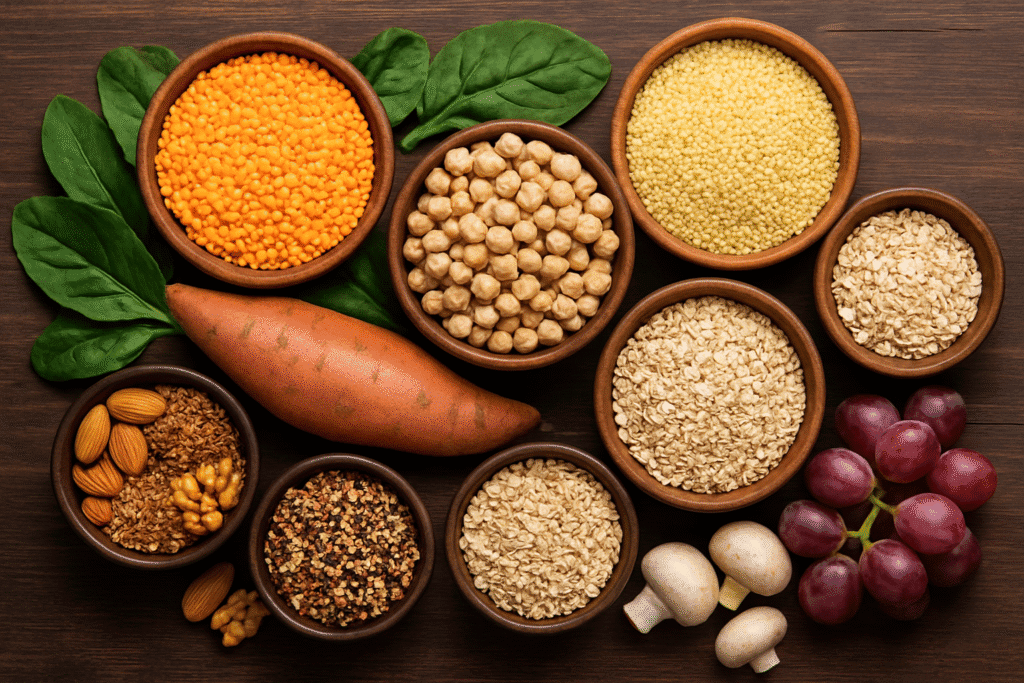






2 thoughts on “10 Nutrition-Boosting Foods You Need to Try in 2025 for Better Health”